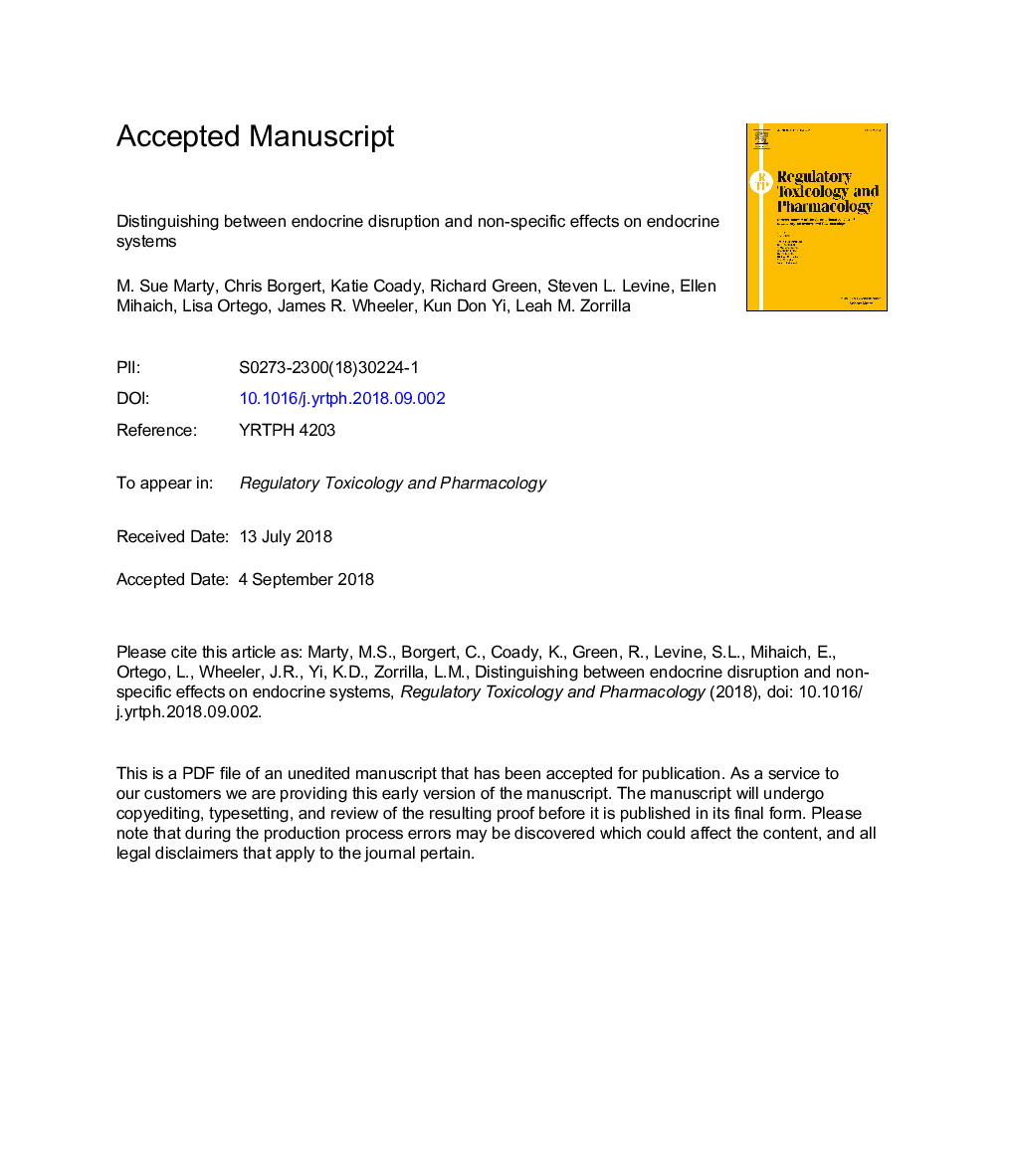| Article ID | Journal | Published Year | Pages | File Type |
|---|---|---|---|---|
| 11031880 | Regulatory Toxicology and Pharmacology | 2018 | 84 Pages |
Abstract
The endocrine system is responsible for growth, development, maintaining homeostasis and for the control of many physiological processes. Due to the integral nature of its signaling pathways, it can be difficult to distinguish endocrine-mediated adverse effects from transient fluctuations, adaptive/compensatory responses, or adverse effects on the endocrine system that are caused by mechanisms outside the endocrine system. This is particularly true in toxicological studies that require generation of effects through the use of Maximum Tolerated Doses (or Concentrations). Endocrine-mediated adverse effects are those that occur as a consequence of the interaction of a chemical with a specific molecular component of the endocrine system, for example, a hormone receptor. Non-endocrine-mediated adverse effects on the endocrine system are those that occur by other mechanisms. For example, systemic toxicity, which perturbs homeostasis and affects the general well-being of an organism, can affect endocrine signaling. Some organs/tissues can be affected by both endocrine and non-endocrine signals, which must be distinguished. This paper examines in vitro and in vivo endocrine endpoints that can be altered by non-endocrine processes. It recommends an evaluation of these issues in the assessment of effects for the determination of endocrine disrupting properties of chemicals. This underscores the importance of using a formal weight of evidence (WoE) process to evaluate potential endocrine activity.
Keywords
Related Topics
Life Sciences
Environmental Science
Health, Toxicology and Mutagenesis
Authors
M. Sue Marty, Chris Borgert, Katie Coady, Richard Green, Steven L. Levine, Ellen Mihaich, Lisa Ortego, James R. Wheeler, Kun Don Yi, Leah M. Zorrilla,
